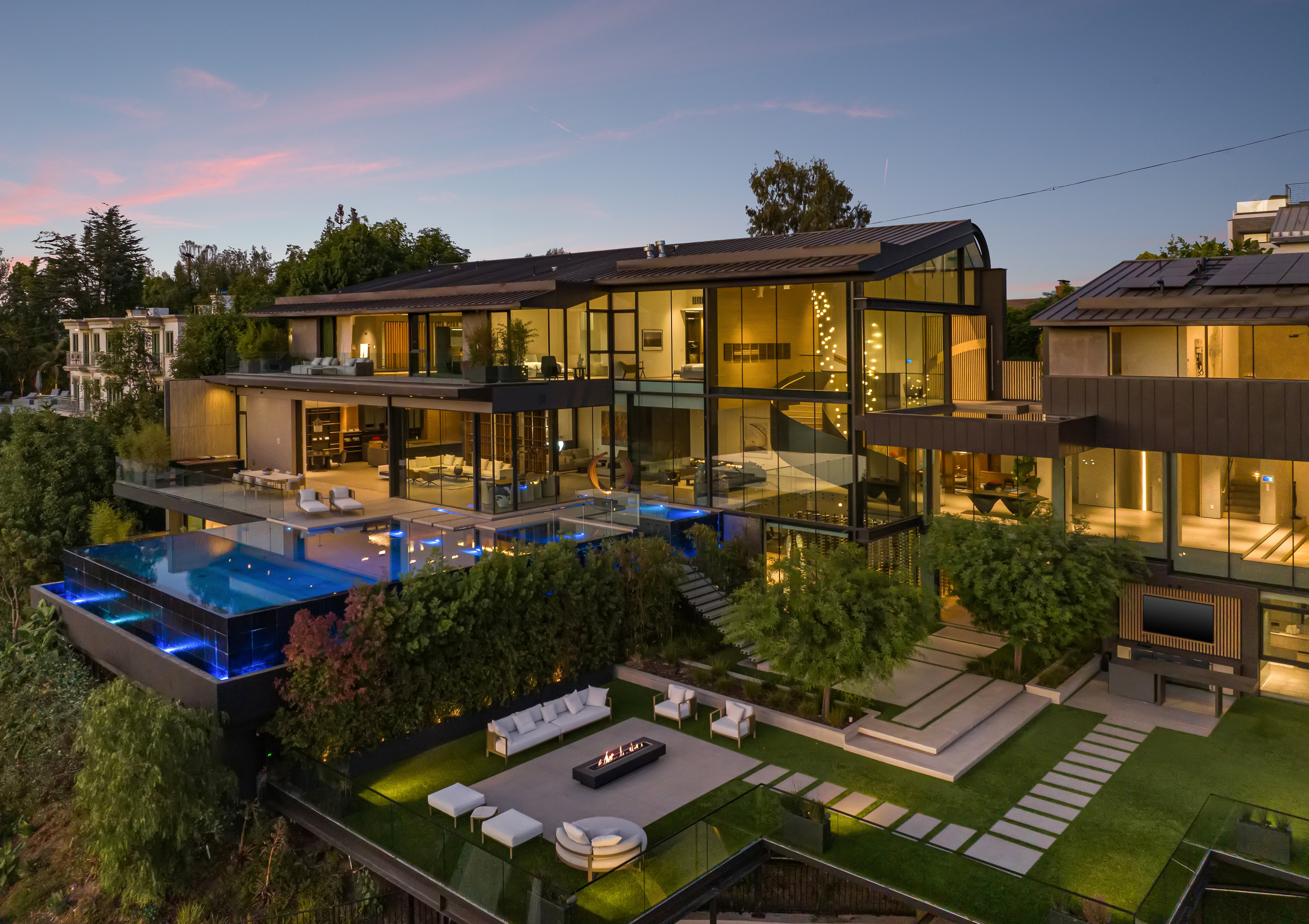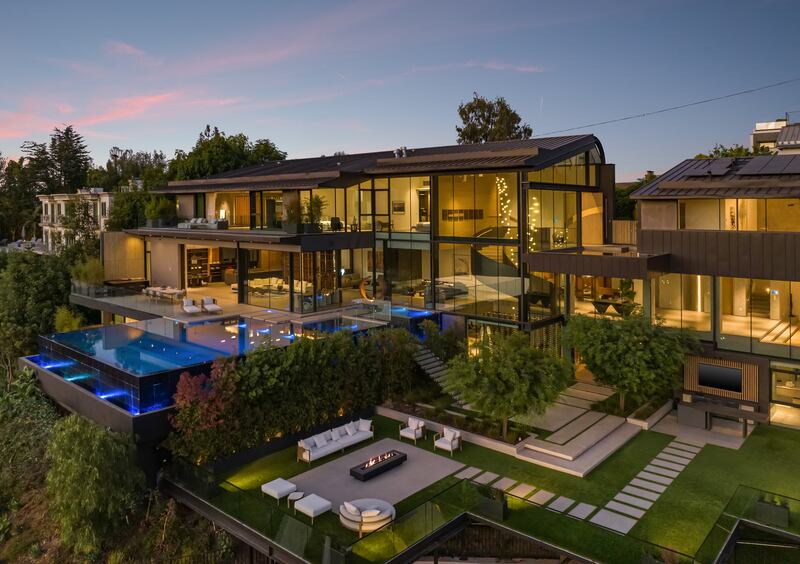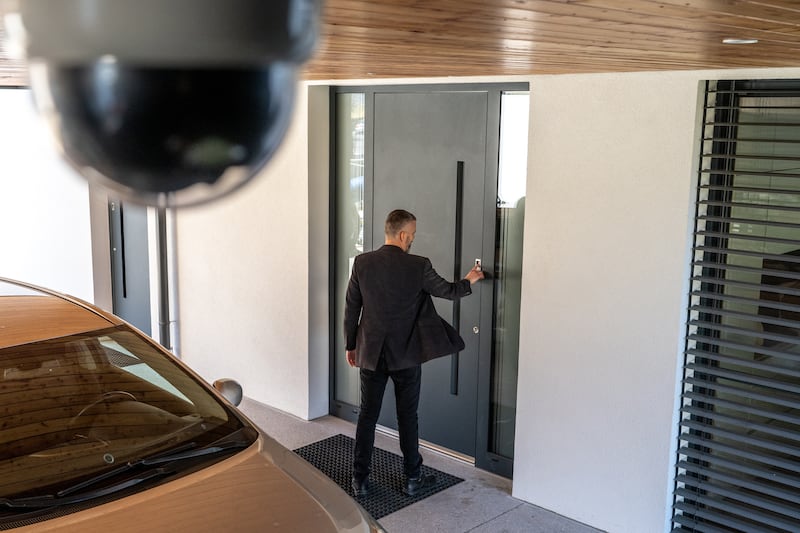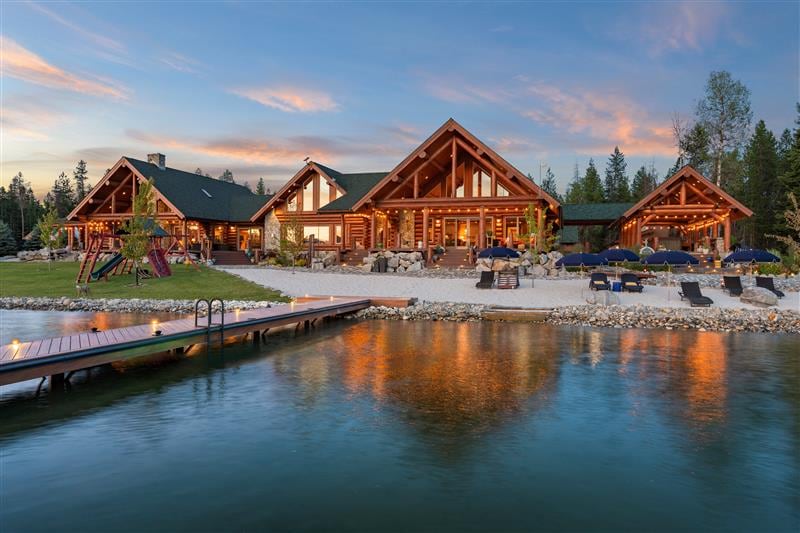
A Safe Investment: A Growing Emphasis on Home Security
Luxury homebuyers and builders are ramping up home security with high-tech systems and heavy-duty fortification
February 12, 2025
Key Takeaways:
• Two-thirds of U.S. real estate agents participating in Christie’s International Real Estate’s annual Luxury Forecast survey said home security is a growing concern for their clients.
• Luxury homes are increasingly incorporating high-tech security measures including AI-enabled surveillance cameras, biometrics, radar systems and acoustic sensors.
• Features like ballistic doors, safe rooms, and even underground bunkers are becoming more common in ultra-luxury properties.
Today’s high-net-worth homebuyers are placing an increased emphasis on privacy and security, motivated by concerns over crime and digital vulnerabilities while being drawn by the allure of cutting-edge technology.
More than 55% of real estate agents surveyed for Christie’s International Real Estate’s annual Global Luxury Forecast said security is taking on heightened importance for their clients. Among agents in the United States, that number jumps to 67%. Several factors are contributing to the trend, some based on reality, others perception. Nevertheless, they are driving real-world decisions when it comes to choosing and outfitting luxury homes.
Despite research indicating violent crime and residential burglary are on the decline in the US, a recent Gallup poll found that more than 75% of Americans believe crime is increasing. There is little doubt that factors like the 24/7 news cycle, war and terrorism, and the constant stream of data breach notifications that land in consumers’ mailboxes contribute to feelings of fear and anxiety. Then, there are headline-grabbing crimes like the brazen murder of a healthcare CEO in Manhattan last December. In the end, people from all walks of life can feel targeted, but affluent homebuyers are uniquely capable of insulating themselves in their homes, and they seem to be doing so with growing fervor.
Their motivations go beyond physical safety. Wealth concentration has surged in recent years, and homes have become treasure troves. “Art, cars, jewelry and rare collectibles can be worth more than the homes containing them,” says Adam Elmer, an agent with Fortune Christie’s International Real Estate in Boca Raton, Florida.
Additionally, skyrocketing insurance costs are necessitating the need to secure high-value personal items. Many insurers require enhanced measures, such as alarm systems, fire protection and safes, all of which can reduce premiums.

Intelligent Security
Not surprisingly, much of the conversation regarding security in today’s luxury homes focuses on technology. And while advancements have led to systems that can cost just a few hundred dollars, that doesn’t mean wealthy homeowners are spending less.
Kevin Klinger, a partner with Savane Properties, a custom builder in Chicago whose average home sells for around $8 million, has witnessed this evolution. “The systems we used to install were fairly basic, costing around $25,000. Today, it’s not uncommon for our clients to spend $200,000. People are doing very high-end security with equally high-end interfaces. Everything is literally at your fingertips to manage and run,” Klinger says.
One advancement is AI software built into surveillance cameras, notes Kelley Wunder, general manager of Chicago-based Premiere Systems, one of Savane’s preferred low-voltage contractors. The software can establish a perimeter around a property and detect when that perimeter is crossed. It can also distinguish between people, animals and objects to reduce false alarms. Acoustic sensing technology picks up the sound of breaking glass or gunshots. These systems communicate directly with emergency management as well as sending alerts to the homeowner.
To better secure waterfront properties, Fortune’s Elmer notes that radar technology is now being used to monitor approaching boats. “You have $100 million oceanfront properties in Palm Beach that will absolutely have this technology,” he says.

Intelligent security systems incorporating biometrics – facial and fingerprint recognition – are also gaining traction in residential use, according to Maxime Dubus, managing director of Geneva-based SPG One SA, the exclusive Christie’s International Real Estate affiliate for French-speaking Switzerland.
“Switzerland is at the forefront of integrating such systems, appealing to homebuyers looking for a unique blend of discretion and modernity. While biometrics are more common in the super-luxury segment, their popularity is starting to reach mainstream luxury properties, too,” says Dubus.
Built Like a Fortress
If for some reason, an intruder does make it past a monitoring system in one of today’s well-outfitted homes, the next level of security is physical fortification – starting with the front door. Wunder of Premiere Systems says ballistic security doors with vault-strength locking systems, similar to those used in embassies, are becoming more common. The doors can be custom-built with access controls such as biometric cameras or video peep holes.
Savane Properties recently installed a ballistic door for a primary bedroom suite at a cost of $15,000, apparently a small price to pay for a good night’s sleep.
Safe rooms and vaults are another heavily fortified feature sought by upper-bracket homebuyers. “In the past eight months, the majority of the big homes we’ve sold include safe rooms,” says Aaron Kirman, founder and CEO of Beverly Hills-based Christie’s International Real Estate Southern California. Kirman regularly deals with eight- and sometimes nine-figure listings. One such home, a $57.5 million mansion in Bel Air, includes a large walk-in vault that can be used as a safe room or to store art and other valuables.
Some people take it even further. Paul Reizen is the broker-owner of PureWest Christie’s International Real Estate in Sandpoint, Idaho, a year-round destination for outdoor enthusiasts, offering activities ranging from mountain sports and boating to hunting and fishing. He is aware of at least two homes in the area with fully functioning underground bunkers.
Ironically, he notes, “This is a town where people leave their homes and cars unlocked. Crime is almost non-existent.”
However, Sandpoint has been gaining a following among tech entrepreneurs and other well-known individuals looking for a quieter alternative to nearby Coeur D’Alene. “The knowledge that a home has certain security features gives comfort to high-net-worth buyers, but you’re reminding people that the chances of ever needing them are slim to none,” says Reizen.

On Patrol
Agents who specialize in the high-end market report yet another trend: the increased use of private security forces. In Chicago, following a wave of break-ins and car thefts, homeowners in a small, upscale section of Lincoln Park, where single-family homes range up to $15 million, pooled resources to hire off-duty police to patrol the neighborhood during overnight hours. The cost is estimated at between $250,000 and $500,000 annually. Neighbors in Bucktown, another upscale area of the city, have a similar arrangement.
In more formal neighborhood associations, security services are an increasingly popular feature. “In South Florida, many communities are patrolled 24/7,” says Elmer, who notes that the security presence is felt. “I’ve been stopped on my way to showings. They know who lives in the community and who doesn’t.”
SPG’s Dubus says hiring professional security services will be more common in 2025 and beyond. “Despite Geneva’s reputation as a safe city, many high-profile buyers including executives, diplomats and public figures prioritize privacy and controlled access as essential lifestyle elements,” he says.
The intricate blend of high-tech systems, physical reinforcements, and community measures isn’t just about security. It’s about creating a private oasis amidst a world filled with uncertainty. After all, what is luxury worth if it doesn’t feel safe?
For more trends and insights, read the 2025 Global Luxury Real Estate Forecast here.